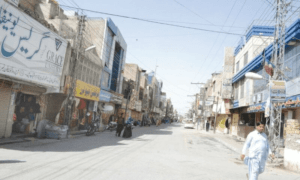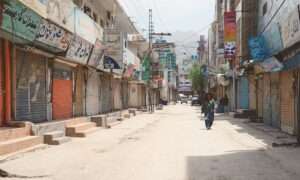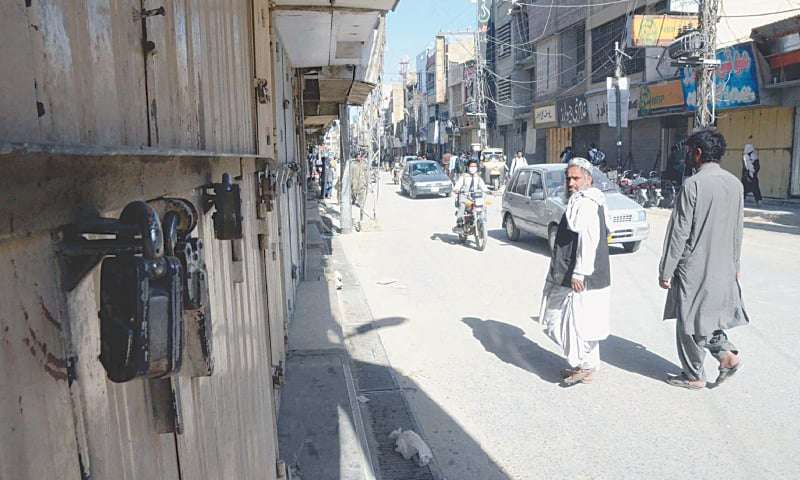Balochistan Strike
Balochistan witnessed a day of protests and a shutdown strike called by a four-party alliance, but the impact on traffic flow was mixed. While some national highways faced disruptions, others remained largely unaffected.

Minister’s Statement:
John Achakzai, the caretaker Information Minister of Balochistan, attributed the strike to disappointment over the rejection of “racist, nationalistic chiefs and nawabs” in the recent elections. He claimed the entire province was being punished for its voting choices and called the strike a failed attempt at pressure politics.
Protest Background:
The strike followed nine days of protests in Quetta by the Baloch National Party (BNP), Pakhtunkhwa Milli Awami Party (PK MAP), Hazara Democratic Party (HDP), and National Party. These protests stemmed from reservations about the election results.
Strike Impact:
The strike partially affected traffic on specific routes. The Karachi-Quetta-Chaman National Highway was blocked at Mastung and Baleli, while the Makran Coastal Highway faced closure near Gwadar and Sarband. However, other highways like the Quetta-Jacobabad and Quetta-Sindh National Highway saw slower traffic but no complete blockage.
Wider Protests:
Beyond the strike, demonstrations continued in various districts like Khuzdar, Ormara, Turbat, Loralai, Qila Saifullah, Kalat, Sibi, Zhob, Barkhan, Hab, and Nushki.
Leadership’s Move:
The four-party alliance leaders, Sardar Akhtar Jan Mengal, Mahmood Khan Achakzai, and Dr. Abdul Malik Baloch, announced an expansion of their protest by blocking national highways to escalate their demands.
Overall:
Despite the strikes and protests, traffic flow in Balochistan wasn’t entirely disrupted. While some key routes faced blockages, others remained operational. The situation highlights ongoing tensions regarding the election results and the four-party alliance’s efforts to pressure authorities.

FAQs:-
1. Why was the strike called?
The strike was called by a four-party alliance of political parties in Balochistan to protest alleged unfairness in the recent elections and to pressure authorities to address their demands.
2. How successful was the strike?
The impact of the strike was mixed. While some national highways faced disruptions, others remained largely unaffected. Traffic flow was slowed in some areas, but there were no reports of major highway blockages.
3. What were the demands of the protesters?
The specific demands of the protesters are not mentioned in the summarized report. However, they are likely related to concerns about the election results and broader issues of political representation and development in Balochistan.
4. What is the current situation in Balochistan?
The situation in Balochistan remains tense following the protests and strikes. It is unclear what further actions the four-party alliance plans to take.
5. What are the potential implications of this unrest?
The ongoing unrest in Balochistan could have broader implications for political stability and development in Pakistan. Monitoring the situation closely and encouraging dialogue between all parties involved is important.


